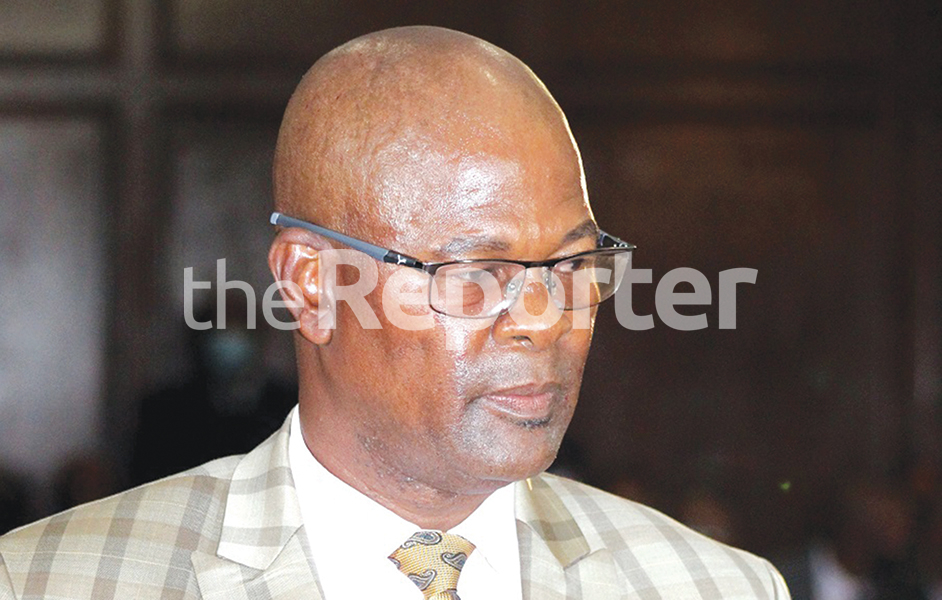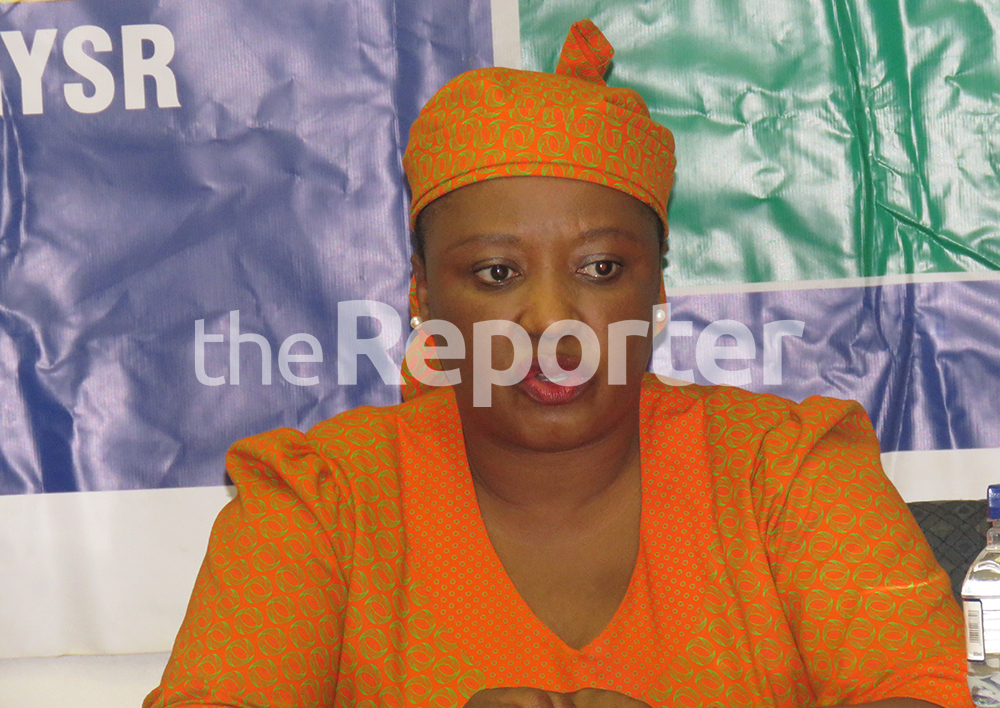By Kefiloe Kajane
Finance minister Thabo Sofonea appears to have hit the right chord with the populace when, in his mid-term budget speech, he talked up agriculture as a sector with a huge potential to create jobs.
The mid-term budget review serves as an opportunity to present the socio-economic developments and budget performance in light of the projections made when the Appropriation Bill was passed. It also helps to determine the economic implications for the remaining months of the fiscal year.
Sofonea said agriculture remains the major source of livelihood for over 70 percent of the population living in the rural areas. In 2018/19, 32.5 percent of rural households obtained their income from subsistence farming, while wages from other employment constituted 19.3 percent.
He noted, however, that continuous drought and poor farming practices have led to an increased food insecurity crisis from time to time, making Lesotho one of many in developing countries that depend on food aid and imports.
He added that poverty, unemployment and inequality continue to be major threats in Lesotho.
“This mirrored in low human development index which stands at 0.49 ranking at 160 out of 188 countries. Population living below the national poverty line is estimated at 34 percent, while the Gini Coefficient has increased from 0.5 to 0.55 in 2019 signaling growing levels of inequality. The reported overall unemployment rate is estimated at 32. 8 percent and is highest among women and youth and 32. 2 percent and 32.3, respectively.
“In the medium-term overall growth is expected to recover to 2.3 percent in 2021/22 before narrowing to 1.6 percent in 2022/23. These will stem from the expected recovery in the agricultural sector, a rebound in construction activities, an improvement in diamond and textile sectors as the global economy recovers.
“With regard to food security, it is estimated that population with food security in urban areas is around 179, 000 and 720,000 in rural areas since March 2020. To provide relief to this vulnerable population. Government has released M100 million for agricultural subsidies to increase food production and nutrition situation whilst maintaining the right level of grain reserves,” Sofonea said.
He further said the agricultural sector has a potential for job creation and poverty reduction. He nonetheless explained that Lesotho continues to experience a decline in food production due to a climate change, among other factors. In order to intensify crop production, he said government is working towards enhancing access to inputs by providing farmers with subsidized seeds, fertilizers, farming implements, and by rehabilitating irrigation systems and strengthening extension services.
He reiterated that the sale of inputs to local Basotho farmers set at 60 percent subsidy is ongoing.
“The ministry is implementing a Contingency Emergency Response Component, through the Food and Agriculture Organisation of United Nations, to provide agricultural inputs for small-scale famers countrywide. The distribution of the inputs is ongoing in the districts of Thaba Tseka, Mokhotlong and Qacha’s Neck. Funds amounting to M80million have been allocated towards this intervention.
“The ministry implemented share cropping with field owners in 20219/20 summer cropping at the sharing ratio of 70:30 for government and farmers respectively in Botha-Bothe; Mopeli block, Leribe: Ralikuku block, Berea: Tseroane, Selakahaphane and Baking block and Maseru: Motemekoane and Toloane block.
“Government’s share of produce has been packaged and over 1, 000 bags of 70kg have been handed over the ministries of social development, of gender and youth, sports and recreation and the prime minister’s office for distribution of the needy. In the current financial year, the government entered into winter share cropping in the Southern districts whereby 580 heaters planted wheat and harvesting will be done in December,” Sofonea said.
The minister further said government has created an opportunity for the farmers to buy inputs at 60 percent subsidy and, as a business opportunity, the ministry has identified 67 traders to sell in remote areas at a reasonable profit margin; this opportunity enables easier access of inputs at villages across the country.
He indicated that the agricultural sector carries out its mandate through the following projects, among others: Irrigation Programme for Southern Africa; Mushroom and Smallholder Agricultural Development Projects. He explained that the government funding for these projects amount to M28.5 million and the expenditure recorded M8.3million following resumption of normalcy after lockdown in the second quarter.
“As it was reflected in the budget speech, around M400 million has been earmarked for improvement of the climatic and economic resilience of the Wool and Mohair project was allocated M207.7 million and the mid-year expenditure sat at M47.1 million. The government is advocating for improved breeds and fibre quality through supplementing subsidized feeding for the better nutrition, expanding local fodder production, among others.
“The ministry is implementing a culling and exchange programme where the farmers exchange four culled animals’ low productive goats and sheep with one improved ram/buck though auction. The main objective of this programme is to improve rangelands and productivity,” he said.
Sofonea also noted that the impact of the Covid-19 pandemic has been transmitted into Lesotho’s fragile economy through diverse ways, resulting into a downward revision of growth forecast as opposed to the projected growth in the 2020/21 national budget.
In the midst of all these trends, he said, GDP growth has been revised down from 2.0 percent to a -3.4 percent, mainly reflecting weaker domestic demand and total investment, exports, and global growth.
Weighing in on the budget, Lesotho Chamber of Commerce and Industry business consultant Paseka Ramokoatsi, lauded the minister of finance for ‘an impressive review’ which focuses on job creation through the private sector.
“From the private sector’s point of view, I would suggest that the social grant that is disbursed to struggling families be revisited such that the ministry should consider increasing the money and training these families on how to use it in a way that promotes self-reliance. For example, they may consider income generating projects, because there is no point in giving them money that will be finished tomorrow and they will still need more to survive
“The same goes for the Youth Apprenticeship Programme; maybe they should also introduce mandatory savings which enable them to start something sustainable for themselves when their term runs out. This will help them to also create jobs for others,” he said.
From the agriculture perspective, however, farmers complained that the opportunity that the government has given them to buy inputs at a 60 percent subsidized price does not benefit all farmers as it is mostly accessed by farmers based in Maseru.
“Even when it does go to the other districts, many farmers still struggle to buy. We all want to be able to help Lesotho produce its own food and not always depend on other countries. So it is imperative that the glitch is addressed, as agriculture is the backbone of the country’s economy.”









